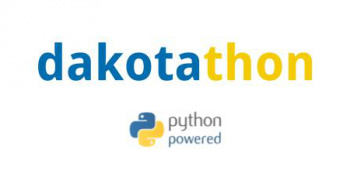Dakotathon
The CSDMS Dakota Interface

Dakota is a software toolkit developed at Sandia National Laboratories that provides an interface between models and a library of analysis methods, including support for sensitivity analysis, uncertainty quantification, optimization, and calibration techniques. Dakota is a powerful tool, but its learning curve is steep: the user not only must understand the structure and syntax of the Dakota input file, but also must develop intermediate code that allows Dakota to set up and run a model, read outputs from the model, and calculate a response statistic from the outputs.
The CSDMS Dakota Interface, or Dakotathon, is a Python package that wraps and extends Dakota’s file-based user interface. It simplifies the process of configuring and running a Dakota experiment, and it allows a Dakota experiment to be scripted. Dakotathon creates the Dakota input file and provides a generic analysis driver. Any model componentized in the CSDMS modeling framework automatically works with Dakotathon. Dakotathon has a plugin architecture, so models not wrapped into the CSDMS modeling framework can be accessed by Dakotathon by programmatically extending a template; an example is provided in the Dakotathon distribution.
Currently, six Dakota analysis methods have been implemented from the much larger Dakota library:
- vector parameter study,
- centered parameter study,
- multidim parameter study,
- sampling,
- polynomial chaos, and
- stochastic collocation.
For instructions on installing and using Dakotathon, please see Dakotathon's CSDMS Model page.
Dakotathon has been installed in the wmt-testing instance on beach.colorado.edu. To use it, login to beach, and from a shell prompt execute:
source /home/csdms/wmt/_testing/conda/bin/activate
This configures the conda environment for this WMT executor. Now, when you run Python or IPython, the Dakotathon package will be available to import.
Links
- The CSDMS Model page for Dakotathon
- The source code for Dakotathon can be found at https://github.com/csdms/dakota
- It includes examples
- The latest developer documentation for Dakotathon is available at http://csdms-dakota.readthedocs.io
- The Dakota home page is https://dakota.sandia.gov
- It includes instructions for downloading and installing Dakota
- The Dakota 6.5 (released November 2016) documentation is available at https://dakota.sandia.gov//sites/default/files/docs/6.5/html-ref/index.html
- Mpiper gave a talk on Dakotathon at the 2016 AGU Fall Meeting; a repository of experiments is here
